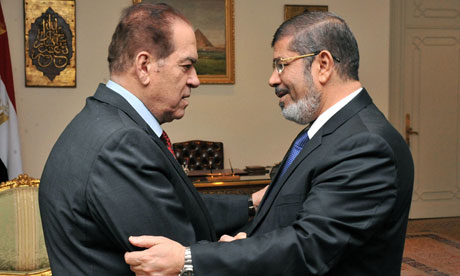JERUSALEM: Israel on Friday raised the possibility of a compromise on settlement construction just ahead of the scheduled ending of curbs that threatened to derail US-backed Middle East peace talks.
Just two days before the conclusion of the 10-month partial moratorium on settlement construction in the occupied West Bank, the government indicated it was willing to cut a deal acceptable to the United States and the Palestinians, who both want an extension of the restrictions.
"Israel is prepared to reach a compromise acceptable to all parties," a senior government official said when asked about US President Barack Obama’s call for the moratorium to be extended.
But he stressed that "there cannot be zero construction" in West Bank settlements.
Prime Minister Benjamin Netanyahu was "making intensive efforts to reach such a compromise before the expiration of the moratorium on September 26," said the official, who asked to be named.
Israel was previously adamant the restrictions would not be renewed even though Palestinian president Mahmoud Abbas had threatened to walk out of the peace talks over the issue.
Obama on Thursday firmly restated his conviction the moratorium should be extended.
Abbas welcomed Obama’s remarks, "especially his call for a halt of the settlement activities and for the creation of a Palestinian state."
The Palestinian leader reiterated his threat to quit the talks if new construction curbs are not imposed.
"At the end of the freeze period on the 26th of this month, if the response about the freeze of settlement is not positive, we will halt negotiations," he said in New York Thursday at a meeting with members of the Palestinian community.
Israeli settlers accused Obama of caving in to Abbas’s threat.
"If President Obama wants to be perceived as an honest broker in this process, he should make clear to Mr Abbas and his colleagues that threats, blackmail and preconditions are not acceptable," the Yesha Council, which represents the settlers, said.
The US administration also said on Thursday it was proposing "ideas" to Israeli and Palestinian negotiators in a bid to break the stalemate over settlements.
In recent days, Netanyahu has discussed the issue with US Secretary of State Hilary Clinton, German Chancellor Angela Merkel and other leaders, the Israeli official said.
The Obama administration had already played a key role in getting the two sides back to the negotiating table on September 2 after a 20-month pause in the peace talks.
The previous round of direct negotiations collapsed when Israel launched a devastating military offensive on the Hamas-run Gaza Strip in December 2008.
Abbas and Netanyahu did not appear to have made any progress towards narrowing their differences during talks last week in Egypt and in Jerusalem attended by Clinton.
In a bid to resolve the row, US officials have suggested a three-month extension to the moratorium during which time the two sides could agree on borders, which could neutralize the settlements dispute, a senior Palestinian official said.
The Palestinians and US negotiators want a complete halt to settlements while Israel is insisting on continuing to build in major blocs it hopes to keep in any final peace accord.
Abbas told AFP this week he was "not opposed to a settlement freeze for a month or two."
The international community considers Israeli settlements in the West Bank, including annexed east Jerusalem, to be illegal. The settlement issue has long been among the thorniest in the peace process.
Some 500,000 Israelis live in more than 120 Jewish settlements across the West Bank and east Jerusalem, territories expected to form the bulk of a future Palestinian state.

